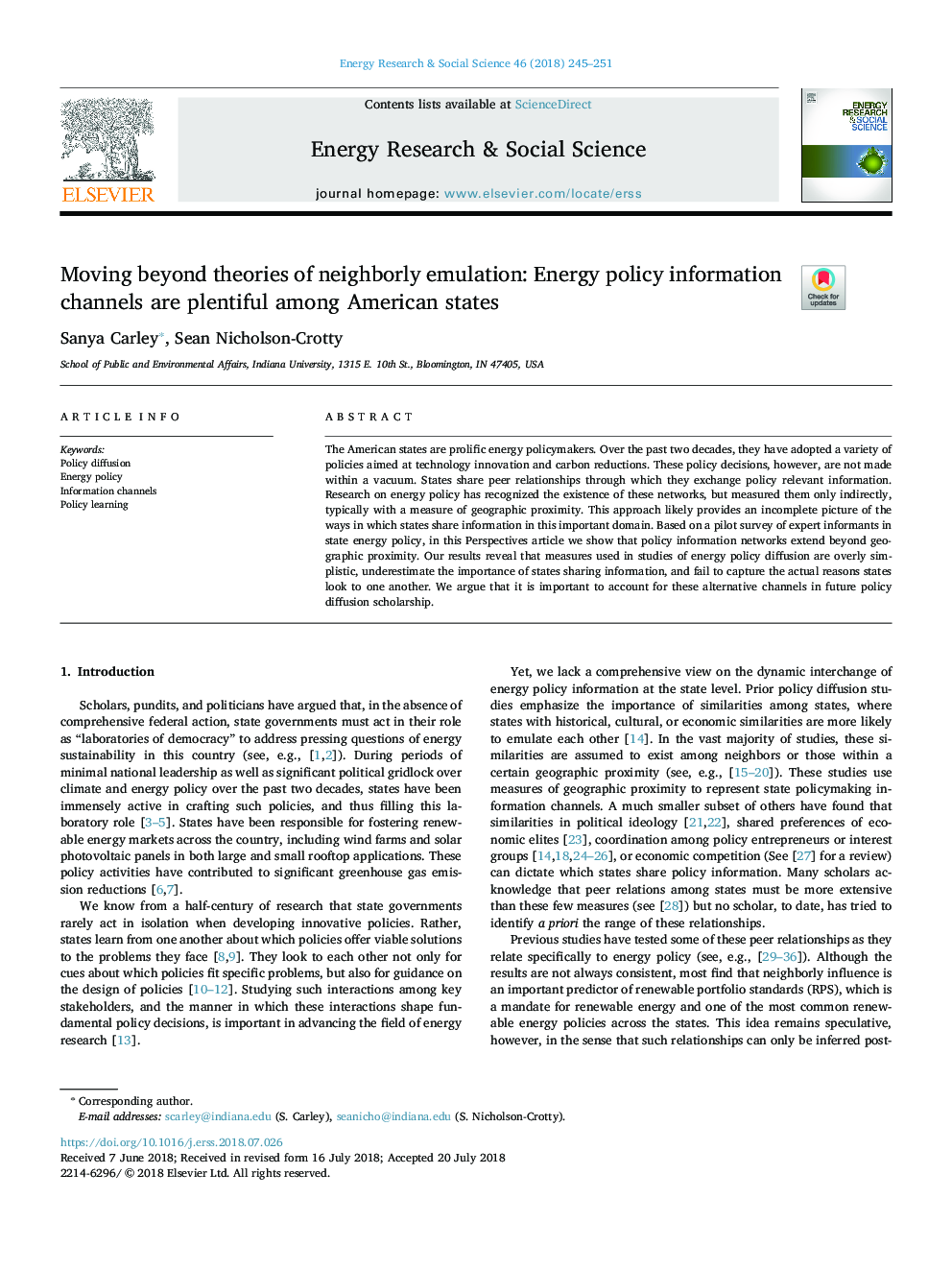| Article ID | Journal | Published Year | Pages | File Type |
|---|---|---|---|---|
| 6557048 | Energy Research & Social Science | 2018 | 7 Pages |
Abstract
The American states are prolific energy policymakers. Over the past two decades, they have adopted a variety of policies aimed at technology innovation and carbon reductions. These policy decisions, however, are not made within a vacuum. States share peer relationships through which they exchange policy relevant information. Research on energy policy has recognized the existence of these networks, but measured them only indirectly, typically with a measure of geographic proximity. This approach likely provides an incomplete picture of the ways in which states share information in this important domain. Based on a pilot survey of expert informants in state energy policy, in this Perspectives article we show that policy information networks extend beyond geographic proximity. Our results reveal that measures used in studies of energy policy diffusion are overly simplistic, underestimate the importance of states sharing information, and fail to capture the actual reasons states look to one another. We argue that it is important to account for these alternative channels in future policy diffusion scholarship.
Related Topics
Physical Sciences and Engineering
Energy
Energy (General)
Authors
Sanya Carley, Sean Nicholson-Crotty,
